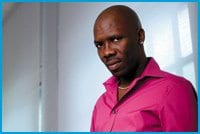A coalition of queer, black and human rights groups is calling for a boycott of Jamaica if the island’s government doesn’t take action on homophobic violence and murders.
But the country’s queer rights group — the Jamaica Forum for Lesbians, Allsexuals and Gays (JFLAG) — says a boycott will make things even worse.
Stop Murder Music Canada (SMMC) — a coalition trying to prevent the sales and performances of Jamaican musicians whose songs contain violently homophobic lyrics — is calling for a boycott if it doesn’t hear a response from the government by May 12. The group met with Jamaica’s consul-general in Toronto in March.
“Economic boycotts have been very effective in winning change,” says Brent Hawkes, the pastor of the Metropolitan Community Church of Toronto and part of SMMC. “This kind of terror will only change if the musicians stop teaching hate, if the churches stop preaching hate and the police and government start taking action.”
According to Amnesty International and gay human rights groups attacks on queers in Jamaica are widespread. JFLAG reported 43 mob attacks on queers in 2007 and that at least 10 queers were murdered between 2005 and 2006.
On Jan 29 of this year, according to a report from Human Rights Watch, a mob broke into the home of four gay men and used machetes to sever the limbs of one man who is in critical condition in hospital. One victim is still missing and is thought to have died jumping off a cliff to escape his attackers.
But JFLAG said in a statement in March that a boycott could put the island’s queers in even more danger.
“Because of the possible repercussions of increased homophobic violence against our already besieged community, we feel that a tourist boycott is not the most appropriate response at this time,” said the statement. “In our battle to win hearts and minds, we do not wish to be perceived as taking food off the plate of those who are already impoverished. In fact members of our own community could be disproportionately affected by a worsened economic situation brought about by a tourist ban.
“JFLAG believes that there are a number of avenues which can be explored to bring pressure on our government to respect, protect and ensure the human rights of LGBT people in Jamaica. We have called on the prime minister and influential leaders of industry to both renounce homophobic violence and commit to a course of action that will stem this scourge that plagues our island.”
But Gareth Henry, the cochair of JFLAG until he was forced to flee the country for Canada last year, says he supports the boycott. He says JFLAG can’t be seen to publicly support a boycott.
“They can’t be the ones to call for the boycott,” he says. “They can’t be that voice. But the gays, lesbians and queers on the ground are supportive of a boycott.”
Henry says he’s tried talking to the government.
“We have tried numerous approaches, numerous dialogues with government officials,” he says. “They have been nonresponsive to the call. We have to hit people where it’s going to hurt, where they’ll feel it. In the Jamaican context talk is cheap. After 10 years of JFLAG’s existence what else can we do?”
SMMC is asking the Jamaican government to immediately denounce homophobic violence in the country and to begin work on repealing laws criminalizing homosexuality, including sexual orientation in the Charter of Rights and developing educational campaigns for the country and for the police.
Read related stories:
- ‘Murder music’ forum draws 200 — Mar 13, 2008
- Jamaican activist seeks refuge in Canada — Feb 28, 2008
- Stopping sales of ‘murder music’ — Feb 14, 2008
- Koolhaus cancels concerts amid queer outrage — Oct 11, 2007
Read related opinion pieces:
- Egale requests censorship — Apr 2, 2008
- Rastafari homophobia is biblical — Nov 29, 2007
-
A sweet & noble victory — Oct 11, 2007
- Don’t ban my booty shakin’ — Sept 27, 2007


 Why you can trust Xtra
Why you can trust Xtra


